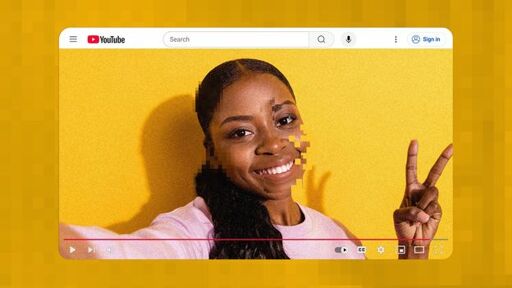YouTube secretly used artificial intelligence to modify creators’ videos without notification or consent, making subtle changes to their appearance[1]. According to Rick Beato, who runs a YouTube channel with over 5 million subscribers, he noticed strange alterations in his videos - his hair looked different and it appeared he was wearing makeup[1:1].
The AI modifications included sharpening skin in some areas while smoothing it in others, defining wrinkles in clothing more clearly, and causing subtle warping of features like ears[1:2]. YouTuber Rhett Shull, who investigated the changes, said “If I wanted this terrible over-sharpening I would have done it myself… I think that deeply misrepresents me and what I do and my voice on the internet”[1:3].
The unauthorized AI enhancements represent a concerning trend where artificial intelligence increasingly mediates reality before it reaches viewers, potentially eroding authentic connections between creators and their audiences[1:4].



I would certainly not want to defend AI and AI-usage but I don’t understand this remark. I mean I understand what it says, but I don’t understand why it’s mentioned at all:
There is no such thing as an ‘authentic connection’ or a non-mediated ‘reality before it reaches viewers’ if by ‘authentic’ the author means ‘direct’, unfiltered or unedited.
In a least two ways, a video is always edited, aka mediated:
So, to me the issue should not be that this mediation was made using an AI-powered tool by Youtube to change the video. It should focus on the fact that YouTube violated the creator’s copyright by deciding on their own to ‘improve’ said videos without the creator’s consent.
A bit like we should not accept when anyone, no matter their reasoning and intentions, wants to edit an existing creation because they think it should be changed (say they don’t like the dude’s face, or their nose or even they disagree with what they say and want to change it). Unless they get explicit authorization to edit it, they should not have any right to do so.
Sorry for the lengthy comment, I find it odd when I read that a video is about ‘authentic connection’ between a supposed reality and us. It’s not, with or without AI involved.
There’s a term in art called “authorial control.” Roger Ebert used the term to attack video games as art, saying they lacked “authorial control” and hence invalid for art.
The claim I hear in this is the AI taking away the control of the author. Yes, videos are edited, but there’s a bunch of choices made in that process. If some robot came in & started mucking around with my edits or lighting, especially without my knowledge, that’s a major red flag. YT, as a platform, already has enough problems. Invisible robots “enhancing” videos is perhaps one of the worst features they can add. Unwanted help is not help.
I fully comprehended what the statement said. You are over analyzing it.
You sure used a lot of words to say something completely meaningless
You might have missed the problem.
We have an authentic connection to the author when we engage with their content, the editing and lighting and scripting is a reality they create and share with us.
What YouTube did was mediate the connection between the creator and the viewers. YouTube destroyed the reality that the author was trying to create for their viewers and substituted its own reality instead.
Just because someone made art, doesn’t mean it’s not reality. Their art is real, and IS that reality. Until YouTube altered it.